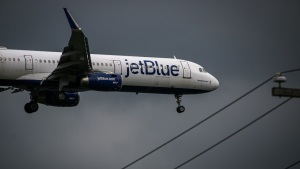Previously, it was mandatory
for government officials to travel by Air India for performing official work. Air
India’s monopoly has been ended following the company’s privatisation and now
majority of the employees’ ticketing requirements will be managed by three public
sector companies.
Why Air India turnaround won’t be easy for Tata Sons
The finance ministry has asked all ministries to clear dues to the airline after Air India stopped offering credit facilities for purchase of tickets by government officials.
Tuhin Kanta Panda, secretary in the department of investment and public management, stated on November 2 that government employees will no longer have to solely depend upon Air India for travel on sectors the erstwhile national carrier serviced.
A senior official told Hindustan Times, “For other places, where there were no Air India [flights] or its subsidiaries, we had to take prior permission for buying tickets.”
Air India acquisition: What do government, Tatas get from the deal?
While Air India has lost a huge consumer base, three public sector companies, Indian Railway Catering and Tourism Corporation (IRCTC), Ashoka Travels and Balmer Lawrie, will benefit from the latest decision.
IRCTC is a ticketing agency that can be used to book tickets for the Indian railways. Balmer Lawrie is a listed company that is administered by the petroleum ministry and provides logistics support along with other services.
The eight airlines operating in India are, Air India, Vistara, Air Asia, Spice Jet, Go First, Indigo, Air India Express and Alliance Air.
Tata Sons set to acquire Air India: Assets the airline will bring
The Tatas bought Air India for Rs 18,000 crore after a number of failed attempts at privatising the airline.
A circular from the Lok Sabha secretariat read, “All officers are requested to purchase air tickets in cash from Air India/Indian Airlines counter or from three agents, Balmer Lawrie and Co. Ashoka Travels and Tours Ltd and IRCTC, authorised by the ministry of finance, for official journeys.”






